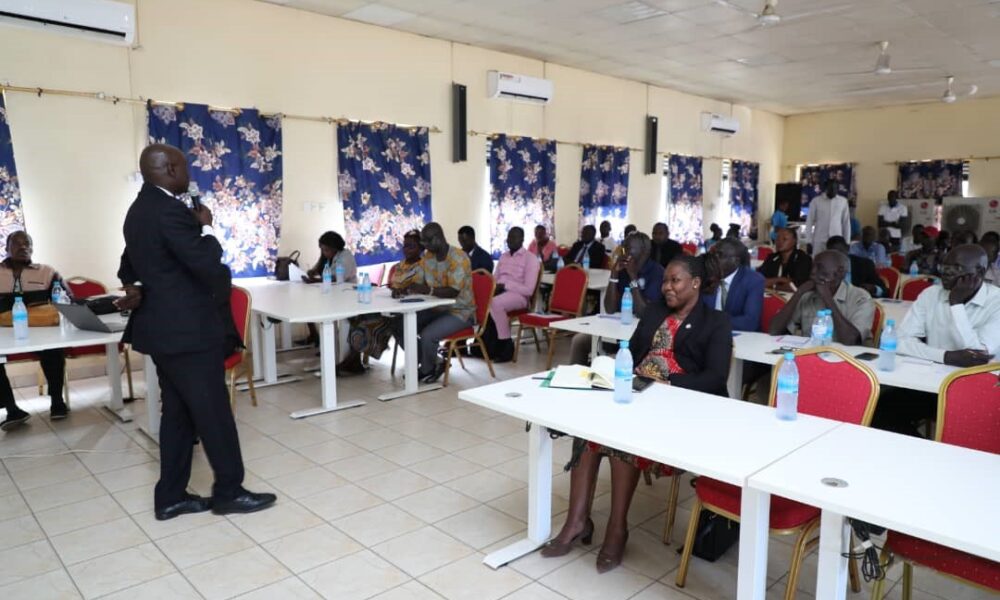By Philip Buda Ladu
A member of National Parliament has called for legislation to establish a National Population Council, a body he believes should work alongside the National Bureau of Statistics.
Hon. Majur Babur, who is the chairperson of the South Sudan Parliamentary Network on Population and Development at the National Legislative Assembly, is urging the Ministry of Finance and Planning to collaborate in legislating a law to establish the council.
“Now in the country, we have the National Bureau of Statistics; there is another institution that is still lacking, the National Population Council,” he stated.
The lawmaker is appealing for cooperation from the Ministry of Finance and Planning, especially the directorate with the issue of planning and budget.
“I am urging them that we collaborate together such that we legislate for the establishment of this body because they will coherently work with the national bureaus of statistics,” Babur appealed.
According to the MP, this body will talk about the policies of the population, what to do with population, and the categories of the population such that the right services and development are delivered to the population.
Babur made the statement during the opening of a training on the integration of population issues into “Development Plans & Budgets” at both national sector and sub-national planning organized by the Ministry of Finance with support from UNFPA.
“Without proper training, we cannot go ahead because the world is changing every day, so you have to be moved to those areas of knowledge such that you are able to deliver,” he told participants on Tuesday.
The South Sudan Parliamentary Network on Population and Development was created at the parliament in 2018 with the help of the UN Population Fund (UNFPA) to take care of population and development issues.
The body operates under the theme “Empowering and uniting legislators to address population development issues through evidence-based policymaking.”
Population is no longer about the numbers but the quality of the people.
Babur asked the government and those who are helping to build capacity of government employees to continue.
Dr. Kidane Abraha, Program Advisor for the UNFPA-South Sudan office, said he was impressed to see the country making progress in the areas of population and development.
Population dynamics factors and characteristics such as activity, mortality, migration, age, sex, distribution, and so forth influence development.
The UNFPA representative noted that population dynamics can impede or hasten development.
Kidane emphasized that planners, especially from all government ministries, departments, agencies, civil society organizations, and the private sector, should be well-skilled with great professionalism in policies and programs.
“UNFPA will continue to support the government, so the Ministry of Finance and Planning should build these much-needed skills and capacity building. This would be even easier if there’s an established entity to operate this parcel,” he underscored.
Suzy Albert Yanga, an official from the Ministry of Finance and Planning who officially declared the training opened, voiced their commitment to fostering sustainable development and improving the well-being of “our” communities.
She also stressed that population dynamics are critical to shaping the policies to address the socioeconomic and environmental challenges.
She added that it is necessary to understand how demographic substances influence their plans and outcomes.
“This training will equip you with knowledge and the tools necessary to effectively incorporate the population issues into our planning process by aligning our approaches,” Suzy stated.
She appreciated UNFPA for the support, underscoring that the training will measure the effectiveness of their programs to ensure that they respond to the needs of all citizens.




